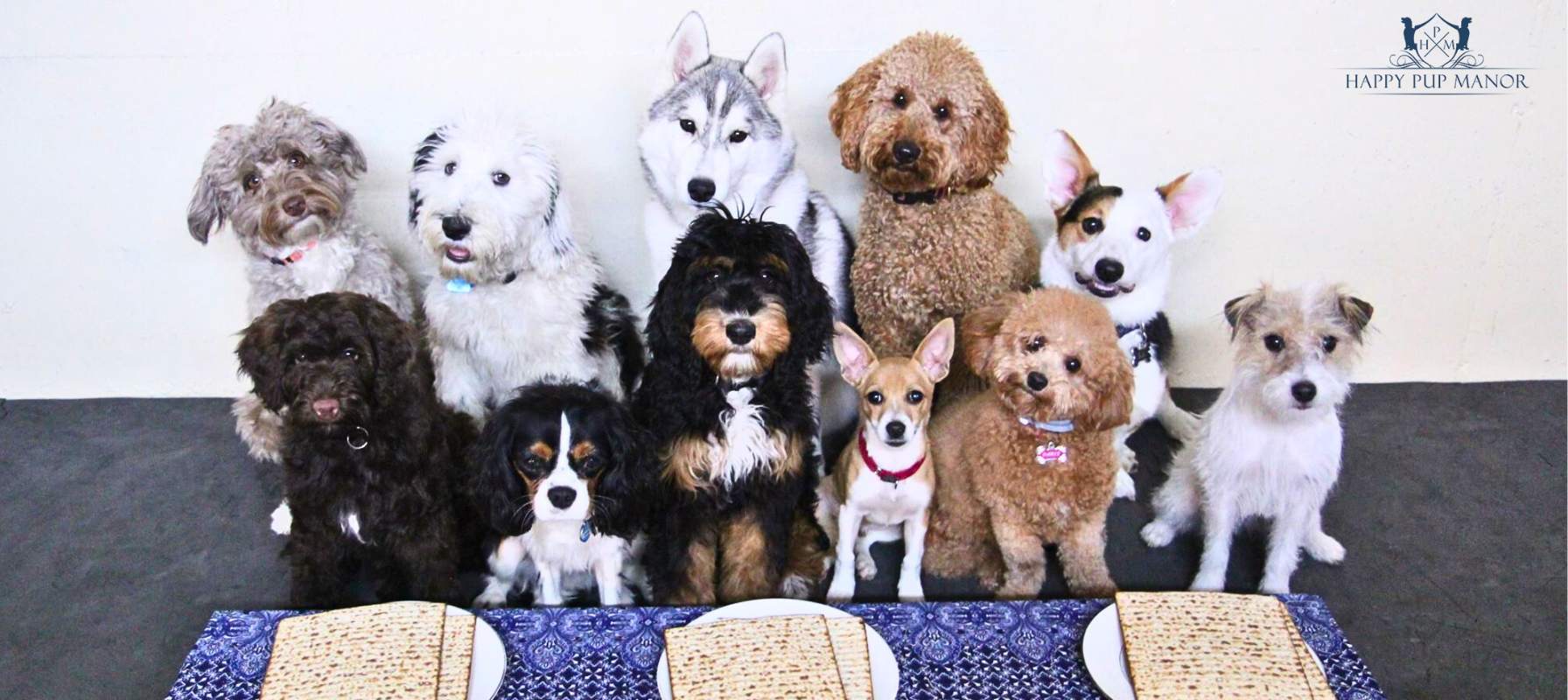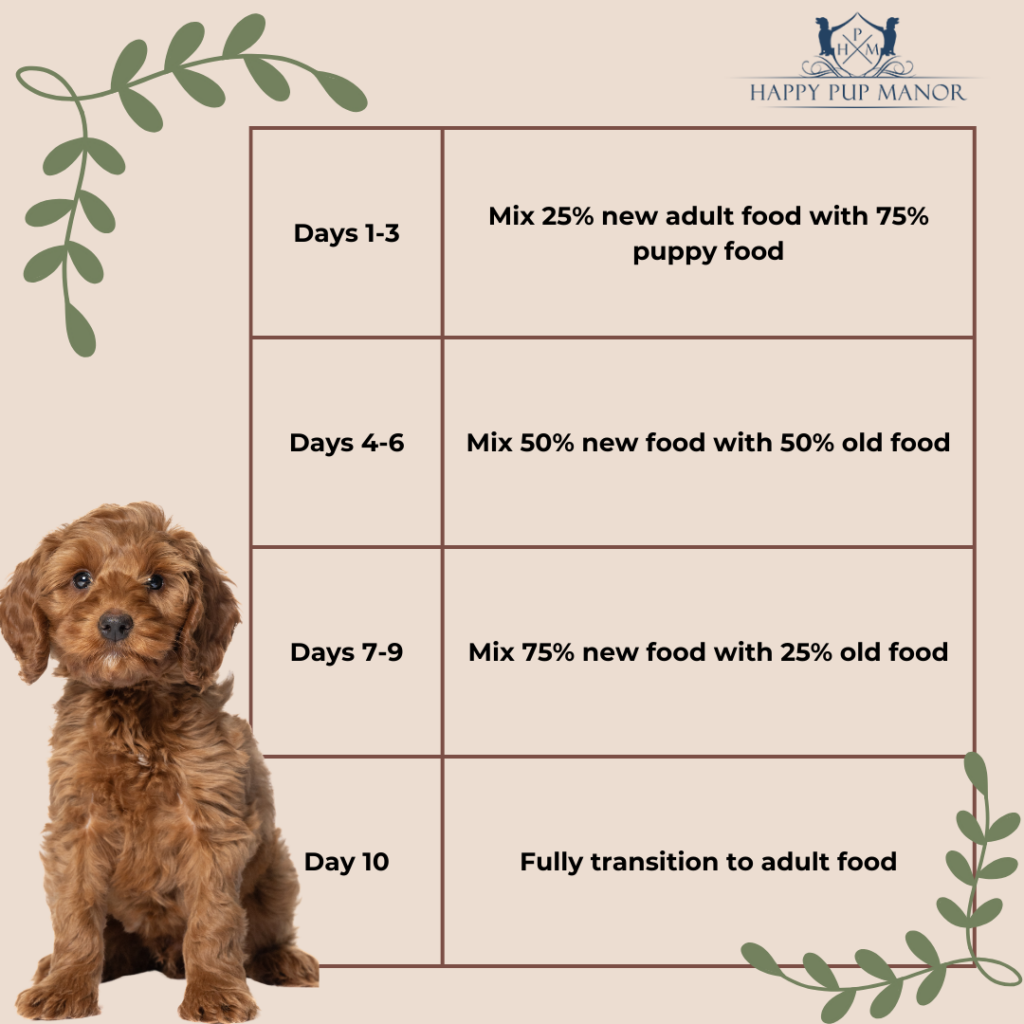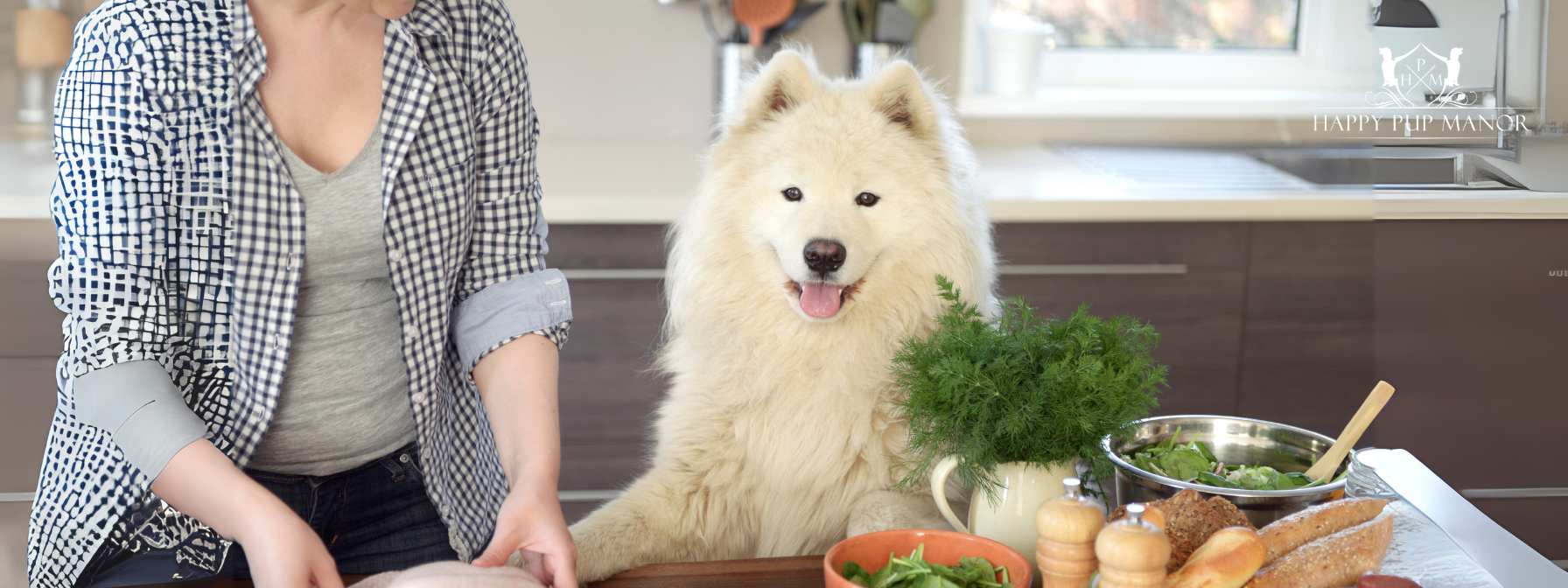Puppy Health: Nutrition and Diet Tips for Growing Doodles

Puppy Health: Nutrition and Diet Tips for Growing Doodles
Welcoming a new Doodle puppy into your home is an exciting experience filled with love, play, and plenty of learning about puppy health. One of the most crucial aspects of ensuring a happy and healthy puppy is choosing the right food for your dog and providing proper nutrition. Because Doodles—whether Goldendoodles, Labradoodles, or Bernedoodles—are known for their intelligence, energy, and luxurious coats, they require a well-balanced diet tailored to their needs.
Choosing the Right Food for Your Dog
When selecting the best food for your Doodle puppy, it’s essential to consider high-quality ingredients, nutritional balance, and breed-specific needs. Choosing the right food for your dog is one of the most important decisions you’ll make for their long-term well-being. Here are a few key factors to keep in mind:
High-Quality Protein
Growing puppies need a protein-rich diet to support muscle development and energy levels. Look for foods that list real meat, such as chicken, lamb, beef, or fish, as the first ingredient. The Association of American Feed Control Officials (AAFCO) recommends a minimum of 22% protein for growing puppies. Adequate protein intake is crucial for your puppy’s rapid growth, helping them develop strong muscles and maintain their high energy levels.
Healthy Fats
Fats play a vital role in brain development, skin health, and energy levels. Doodle puppies require Omega-3 and Omega-6 fatty acids, which can be found in fish oil, flaxseed, and chicken fat. These essential fatty acids contribute to a healthy coat, reducing the risk of dry, flaky skin and excessive shedding. The National Research Council (NRC) recommends a minimum of 8% fat in puppy diets to support proper growth and cognitive function.
Essential Vitamins and Minerals
A well-balanced diet for growing puppies should include:
Calcium and Phosphorus: Necessary for strong bones and teeth. Found in dairy products, fish, and leafy greens. The recommended calcium-to-phosphorus ratio is 1:1 to 1.3:1.
DHA (Docosahexaenoic Acid): Supports brain development and cognitive function. Commonly found in fish oil, salmon, and egg yolks.
Antioxidants (Vitamin E and Vitamin C): Strengthen the immune system. Present in foods like spinach, blueberries, and sweet potatoes.
Fiber: Aids digestion and supports gut health, found in ingredients like sweet potatoes, pumpkin, whole grains, and green beans.
Avoid Fillers and Artificial Ingredients
Stay away from foods containing artificial preservatives, by-products, and excessive fillers like corn, soy, and wheat, which provide little nutritional value. These ingredients are often used to bulk up lower-quality dog foods without offering essential nutrients. They may also contribute to obesity, inflammation, and digestive issues over time.
These ingredients can also contribute to food sensitivities, allergies, and digestive issues, which some Doodles may be prone to. Many commercial dog foods use artificial preservatives such as BHA, BHT, and ethoxyquin, which have been linked to potential long-term health concerns. Opting for natural preservatives like vitamin E (tocopherols) or rosemary extract is a healthier alternative.
Feeding Schedule and Portion Control

Consistency is key when it comes to feeding your Doodle puppy. Establishing a regular feeding schedule helps with digestion and prevents overeating. According to veterinary recommendations:
- 8-12 Weeks: 4 small meals per day
- 3-6 Months: 3 meals per day
- 6-12 Months: 2 meals per day
- 1 Year and Older: Transition to adult food and continue with 2 meals per day
Portion sizes vary depending on the brand of food, your puppy’s activity level, metabolism, and overall health condition. Puppies with higher energy levels or those in active training may require more food compared to less active puppies. Always consult with your veterinarian to ensure you’re providing the right amount for optimal growth. Measuring portions accurately with a measuring cup or a digital scale can help maintain consistency and prevent overfeeding or underfeeding.
Overfeeding can lead to obesity, joint stress, and other health issues such as diabetes, while underfeeding can hinder proper development, weaken the immune system, and cause nutrient deficiencies. Regular weight checks and body condition assessments can help ensure your puppy is growing at a healthy rate.
Hydration is Key to Puppy Health
Proper hydration is just as important as nutrition, as water plays a crucial role in regulating body temperature, aiding digestion, and supporting overall organ function. Always ensure your puppy has access to fresh, clean water throughout the day, as dehydration can lead to serious health issues such as lethargy, dry skin, and kidney problems.
Doodles are an active breed, meaning they require ample water intake to stay hydrated, especially after playtime and exercise. During warmer months or after vigorous activity, consider providing ice cubes or water-rich foods like cucumbers or watermelon (without seeds) to help keep your puppy cool and refreshed.
Special Dietary Considerations for Doodles
Doodles can be prone to food sensitivities and allergies, so it’s important to watch for signs of digestive upset, itching, or excessive shedding. If your puppy experiences these issues, consider a limited-ingredient diet or consult your vet about potential allergens. Some common allergens for dogs include:
- Meat
- Dairy
- Grains (such as wheat and corn)
- Artificial additives and preservatives
Additionally, because Doodles are an active breed, they may benefit from joint-supporting ingredients like glucosamine and chondroitin as they grow. These supplements help prevent joint issues, such as hip dysplasia, which can be common in larger Doodle varieties.
Related Reading: Choosing the Right Food for Your Pup
The Role of Treats in a Healthy Diet

Treats are invaluable tools for training and bonding with your Doodle puppy; however, it’s essential to offer them in moderation to maintain a balanced diet. Treats should not constitute more than 10% of your puppy’s daily caloric intake. Opt for healthy options such as:
Freeze-Dried Meats: These treats are rich in protein and free from additives, making them an excellent choice for high-energy puppies. They help support muscle development while offering a tasty, natural reward. For example, Fresh Is Best Freeze-Dried Raw Meat Treats offer high-quality, single-ingredient options.
Carrot Sticks: Low in calories and high in fiber, carrots are excellent for dental health by naturally cleaning teeth and promoting fresh breath. They are also packed with beta-carotene, which supports eye health. You can find organic options like Wet Noses Organic Crunchy Dog Treats, which incorporate carrots.
Blueberries: Packed with antioxidants, blueberries support immune health, brain function, and help combat inflammation. These nutrient-dense berries are an excellent choice for puppies prone to joint issues or those needing a boost in cognitive development. Consider treats like Choolip Squeeze Vita Stick Lickable Treats, which include blueberry extract.
Apple Slices (without seeds): Apples provide vitamins A and C, which support immune health and skin condition. The natural crunchiness of apples also aids in dental hygiene. Ensure seeds are removed, as they contain cyanogenic compounds that can be harmful to dogs.
Pumpkin Puree: Rich in fiber, pumpkin aids digestion by soothing an upset stomach and promoting regular bowel movements. It is an excellent choice for puppies experiencing mild digestive issues. Products like the Well Loved Pumpkin Puree contain pumpkin as an ingredient.
Take Note! Avoid highly processed treats with artificial colors, flavors, and preservatives, as they can contribute to weight gain and other health issues. Always check ingredient lists to ensure you’re providing the healthiest options for your puppy.
Related Reading: Dog Lick Mats: What Are They and Why We Love Them
Transitioning to Adult Food
As your Doodle puppy grows, their nutritional needs will change. Typically, puppies should transition to adult food between 12 and 18 months of age. The transition should be done gradually over 7-10 days to avoid digestive issues:

Providing proper nutrition for your Doodle puppy sets the foundation for a lifetime of good health. By choosing the right food for your dog, maintaining a consistent feeding schedule, and paying attention to their unique dietary needs, you’ll help your puppy grow into a happy, healthy, and energetic companion. When in doubt, always consult your veterinarian to ensure your Doodle is getting the best possible care.
At Happy Pup Manor, we specialize in caring for and training Doodles, ensuring they get the best start in life. If you have any questions about your puppy’s diet or training, we’re here to help!
Keep Reading: How To Stop Dog Begging For Food?











